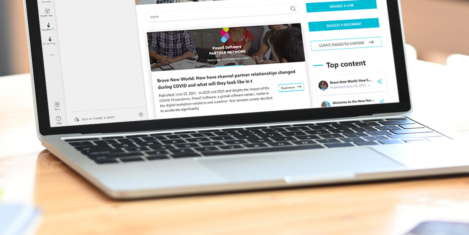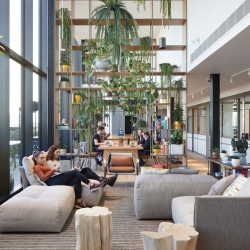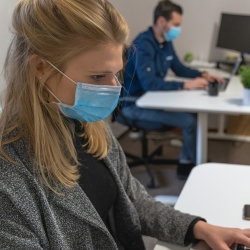To provide the best experiences, we use technologies like cookies to store and/or access device information. Consenting to these technologies will allow us to process data such as browsing behaviour or unique IDs on this site. Not consenting or withdrawing consent, may adversely affect certain features and functions.
The technical storage or access is strictly necessary for the legitimate purpose of enabling the use of a specific service explicitly requested by the subscriber or user, or for the sole purpose of carrying out the transmission of a communication over an electronic communications network.
The technical storage or access is necessary for the legitimate purpose of storing preferences that are not requested by the subscriber or user.
The technical storage or access that is used exclusively for statistical purposes.
The technical storage or access that is used exclusively for anonymous statistical purposes. Without a subpoena, voluntary compliance on the part of your Internet Service Provider, or additional records from a third party, information stored or retrieved for this purpose alone cannot usually be used to identify you.
The technical storage or access is required to create user profiles to send advertising, or to track the user on a website or across several websites for similar marketing purposes.
 As SMEs (small and medium-sized enterprises) grapple with a myriad of challenges to keep their companies running successfully, Powell Software introduces Together, the small business intranet accessible from Microsoft Teams that helps meet their productivity, communication and collaboration needs. (more…)
As SMEs (small and medium-sized enterprises) grapple with a myriad of challenges to keep their companies running successfully, Powell Software introduces Together, the small business intranet accessible from Microsoft Teams that helps meet their productivity, communication and collaboration needs. (more…)










 The latest research from
The latest research from 
 The World Green Building Council (
The World Green Building Council (
 Employee experience has never been so high on the corporate agenda; with recent figures finding
Employee experience has never been so high on the corporate agenda; with recent figures finding 
 As
As 
 Workers are leaving jobs like never before, and it’s causing a shortage of talent that has companies around the globe reeling, according to a
Workers are leaving jobs like never before, and it’s causing a shortage of talent that has companies around the globe reeling, according to a 
 In its latest white paper report,
In its latest white paper report, 
 Since offices reopened, there has naturally been a much greater focus on health and safety. Office managers everywhere have deployed one-way corridors, anti-viral disinfectant wipes, and daily temperature checks in order to ensure that those who have returned to the office feel safe. Globally, businesses have learned to cope with these adverse circumstances, but there are other lessons from the past year that we should use to refresh the workplace as well.
Since offices reopened, there has naturally been a much greater focus on health and safety. Office managers everywhere have deployed one-way corridors, anti-viral disinfectant wipes, and daily temperature checks in order to ensure that those who have returned to the office feel safe. Globally, businesses have learned to cope with these adverse circumstances, but there are other lessons from the past year that we should use to refresh the workplace as well. 
 Disruption, cost, building style, individual goals, responsibility and shared space are cited as the key sustainability challenges for the flexible office sector, according to the
Disruption, cost, building style, individual goals, responsibility and shared space are cited as the key sustainability challenges for the flexible office sector, according to the 







November 1, 2021
The modern workplace is defined as much by digital space as the physical office
by Wilco Wijnbergen • Comment, Property, Technology